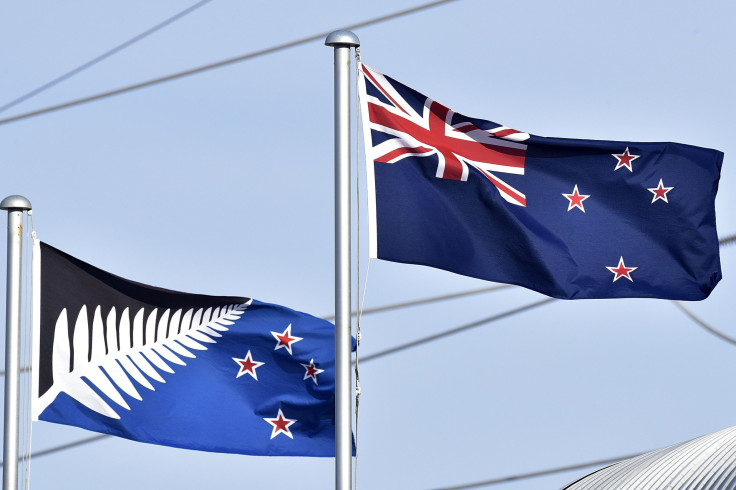New Zealand Flag Referendum: Kiwis Reject New Design, Vote For Status Quo

New Zealand, it turns out, is not changing its flag after all. On Thursday, preliminary results of a referendum that pitted the century-old incumbent against the black, white and blue “Silver Fern” showed that more than half of the over 2 million voters in the island nation voted for status quo.
Nearly 57 percent of the voters cast their ballots in favor of keeping the current flag, and only 43.2 percent voted for the new design. The voting on the referendum ended Thursday and the final results will be announced on March 30.
The widely expected results come just months after thousands of submitted designs, including the less unconventional kiwi bird shooting lasers and a woolly sheep with stars for eyes, were reduced to five finalists by a panel of 12 judges. The final competitor, which combines four red stars representing the Southern Cross constellation — also found on the current flag — with a silver fern and black in the corner, was chosen in the first stage of the referendum in December.
In New Zealand, the fern is of huge symbolic importance in the native Maori culture and is also a motif associated with the country’s famous rugby team.
In contrast, the existing design features the British Union Flag, considered by many, including Prime Minister John Key, a legacy of New Zealand’s days as a British colony. Advocates of a change in the flag’s design also point to its similarity to the Australian flag.
“Obviously I’m naturally a bit disappointed that the flag didn’t change tonight,” Key said, while speaking to reporters Wednesday, adding that the “discussion about nationhood” was important even though it did not result in a change in the flag.
“New Zealand has voted to retain our current flag and I’m proud that more than 2 million New Zealanders participated in this important discussion and referendum on our national identity. Now a flag has been decided I encourage all New Zealanders to use it, embrace it and, more importantly, be proud of it,” Key said in a statement.
The referendum was the culmination of an 18-month process that is estimated to have cost over $17 million — a price tag that is also believed to have put off some voters.
© Copyright IBTimes 2024. All rights reserved.





















